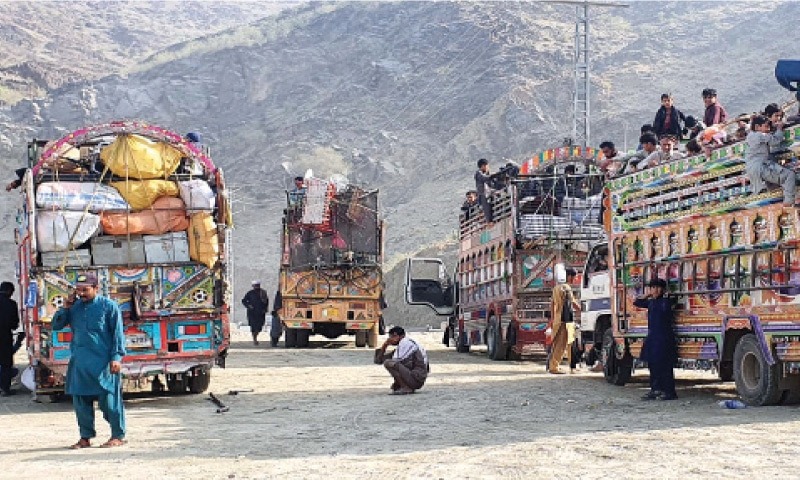The exodus of unregistered Afghan nationals from Pakistan has gained remarkable momentum, with thousands making their way back to Afghanistan amid increasing pressure from the Pakistani government. As the October 31 deadline for all ‘aliens’ to leave the country approaches, an estimated 8,000 individuals crossed the Torkham border on Sunday alone. This surge in returns, now totaling nearly 10,000, marks a significant shift from previous years when Afghans preferred to endure harsh Afghan winters in Pakistan. The intensified crackdown on unregistered Afghans by Pakistani authorities has compelled many to return to their homeland. The question remains: Will this trend continue to accelerate in the coming days?
A Growing Exodus
The return of unregistered Afghan nationals from Pakistan is swiftly gaining momentum, signaling a dramatic shift in the usual patterns of migration. Over the last three days, more than 150 families, predominantly unregistered but holding Proof of Registration (POR) cards or Afghan tazkira (national identity cards), have chosen to return to Afghanistan voluntarily. This voluntary repatriation has been further accentuated by the arrival of an additional 8,000 individuals who crossed the Torkham border on Sunday. As Pakistan’s October 31 ultimatum looms, the number of returning Afghans is expected to surge even higher.
Changing Priorities Amidst Cracking Down
Traditionally, many Afghan nationals have opted to stay in Pakistan during the harsh Afghan winter months. However, this year, the situation has taken an unprecedented turn. Pakistani authorities have intensified their crackdown on unregistered Afghans living within the country, prompting many to reconsider their stay. The threat of eviction and the ultimatum issued by Pakistan have created a sense of urgency among Afghan nationals. As a result, they are increasingly choosing to return to their homeland, despite the impending winter conditions in Afghanistan.
Assistance and Uncertainty
Assistant Commissioner Irshad Ali Momand, from Landi Kotal, highlighted that Afghan nationals possessing valid Afghan tazkira have been granted some leniency. The district administration and immigration officials are working diligently to provide support and assistance to individuals and families who are voluntarily returning to Afghanistan. However, the situation remains fluid as the district administration awaits a national policy regarding the official ultimatum for the eviction of all unregistered aliens. The uncertain nature of this policy leaves many questions unanswered for both the returning Afghan nationals and Pakistani authorities.
As the deadline for Afghan nationals to leave Pakistan approaches, the mass exodus of unregistered individuals continues to be a prominent concern. The evolving situation at the Torkham border underscores the urgency and significance of this issue. The Pakistani government’s crackdown has not only disrupted the traditional migration patterns but has also raised questions about the fate of those returning to Afghanistan. With the number of returning Afghans on the rise, it remains to be seen how this dynamic will unfold in the coming days, leaving many anxiously awaiting the official policy that will guide this process.
















